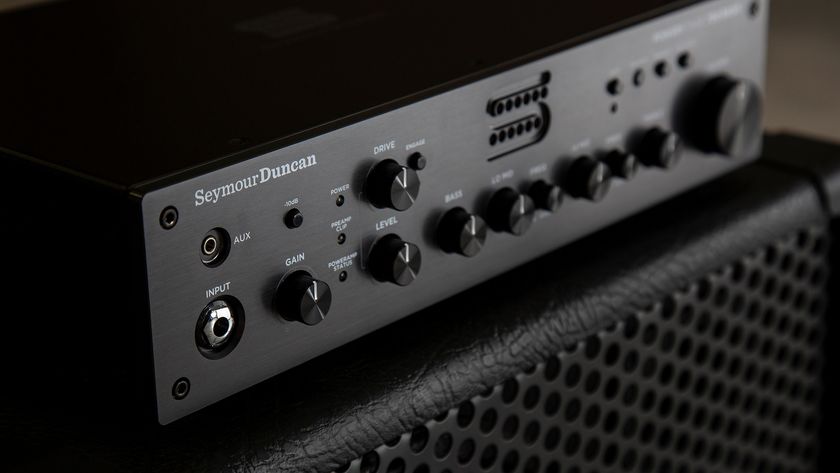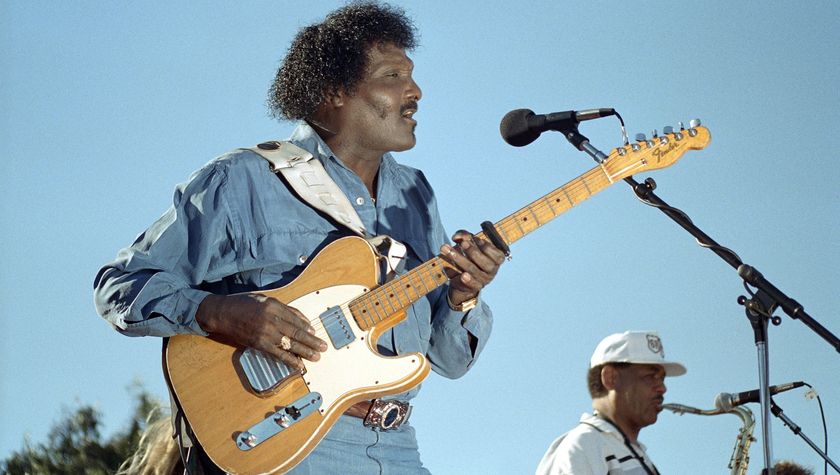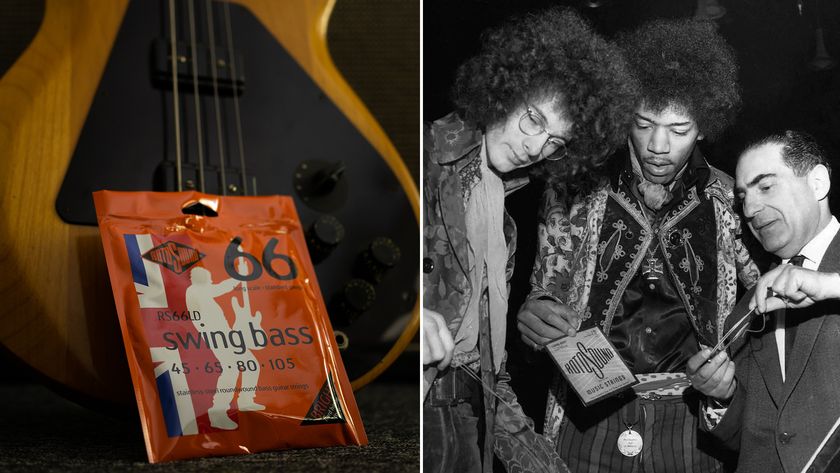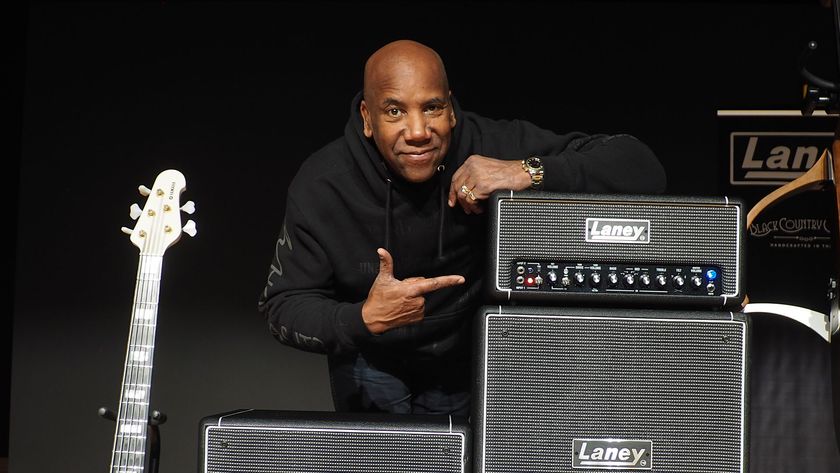Norm Stockton: “I’ve always strived to make my music something that speaks to the heart”
Few bass players have covered as much territory as the great Norm Stockton. Here, he looks back on five key releases that chart his progression as a musician

Versatile bass guitar maestro Norm Stockton has worked with a wide range of artists over his multi-decade career. He is equally adept at working with American Idol star Clark Beckham as he is in the field of smooth jazz-funk with Steve Laury of Fattburger.
His rock chops are immense, and his thirst for exploring the possibilities of I music in all its forms have led him to investigate the grooves in West African polyrhythms.
As well as his bass adventures, Norm is an educator who has released a well-received series of instructional DVDs and the book, The Worship Bass Book: Bass, Espresso & The Art Of Groove. He regularly conducts masterclasses at music colleges in Los Angeles and London, and his website ArtofGroove.com boasts subscribers from around the world.
Norm's solo works feature top-calibre guests including John Patitucci, Gregg Bissonette, Etienne Mbappé and more. He has worked with a raft of Grammy winners, and was the go-to live bassist for the chart-topping worship music artist Lincoln Brewster for six years.
His music and his Christian faith are front and centre in his life and work: there's a philosophical element to his music that is easy to appreciate. Now based in Orange County, California, Norm chats with us about five albums that have marked key moments in his career to date.
Norm Stockton – Grooves And Sushi (2021)
“Sushi is sort of a recurring theme with me. I’m half Japanese, born and raised in Japan, so it’s close to my heart. What was really exciting about this for me was that it was the first project I ever did as a leader where it was all tracked live.
A testimony to the fabulous players on it
“The idea was that we’d record for one day and it would be done. Then I thought, ‘If we’re gonna do that, how much harder would it be to have a camera crew there to shoot it so we’re able to actually see the performances?’ It’s a much more involved process, but I was already too far down that road by then, so we did four different shoots with four different ensembles.
Get The Pick Newsletter
All the latest guitar news, interviews, lessons, reviews, deals and more, direct to your inbox!
“We thought it’d be kind of fun to have sushi and tell stories, and maybe even throw a couple of those stories in on the record! I had tons of fascinating conversations, so it ended up being a web series with people like Gregg Bissonette talking about working with Ringo, and Chris Coleman talking about playing with Prince.
“It was definitely a thrill and a challenge, because we were playing music that had never been performed before, in an ensemble that had never played together. It is testimony to the fabulous players that were on the project that it all came out amazingly well.”
Norm Stockton – Tea In the Typhoon (2010)
“When you’re an independent artist, you have complete autonomy over the artistic statement you’re making. You don’t have a label telling you that it needs to be more commercial or whatever, so I’ve always strived to make my music something that speaks to the heart, and actually moves somebody on an emotional level. I was immersing the daylights out of myself with the West African music that I was listening to, and that inspired the writing.
It’s not breaking any crazy new ground, but the approach to time and the approach to groove and the beat placement, all of that is very different than a standard Western approach
“Technique-wise, a lot of it is fingerstyle. It’s not breaking any crazy new ground, but the approach to time and the approach to groove and the beat placement, all of that is very different than a standard Western approach. Dave Owens, the drummer, turned me on to an album called Tchokola by Jean-Luc Ponty; the rhythm section is all West African players who lived in Paris at the time and they are just fabulous.
“From there I started listening to other West African stuff, and was shown that 12/8 stuff and that 6 over 4 feel. These musicians do that, seamlessly, going back and forth, and to a Western musician you’re like, ‘Man, this grooves like mad... but wait, where’s the one?’ It’s really interesting music.”
Norm Stockton – Pondering the Sushi (2003)
“My first project as a leader – and where the sushi motif began. At the time I was a clinician with a Christian label called Maranatha! Music, mostly going to churches all over the USA and Canada, doing instructional stuff.
Everything was tracked using a Roland VS-1680 in hotels around North America
“I’d have a room full of bassists and I thought it’d be great to hang out on extra days and really teach essential stuff. So that ended up as a couple of videos, looking at timekeeping, groove, phrasing, not overplaying. Then people asked me: ‘Where’s your own music?’ Pondering the Sushi is my answer.
“Everything was tracked using a Roland VS-1680 in hotels around North America, alongside a guitar player, Kevin Rogers. He’d come over and we’d plug in and lay down tracks. I tracked my solo version of The Star Spangled Banner one night in New York City overlooking Manhattan. It was quite a moment. When we went to mix it we couldn’t use the 1680, so had to transfer it using MIDI timecode.
“In places I can tell things swam a little bit, time-wise, because of the sync issues, but nobody’s ever noticed, at least not yet! Tangentially, though, one of the hardest skills to develop is the ability to step back and go: ‘Yeah, it wasn’t perfect, but it was musical.’ Use your ears to edit, not what the screen tells you.”
Lincoln Brewster – Today Is the Day (2008)
“Lincoln is a fabulous guitarist who played with Steve Perry of Journey for a while. He is very well known as a contemporary worship artist and I’ve worked with him for quite a few years. This was a really important album for me, not just on an exposure level but because it covered a really broad range of styles.
This was a really important album for me, not just on an exposure level but because it covered a really broad range of styles
“I came up in music as a rock and prog guy, but then I saw Chick Corea play, and later the Stu Hamm band, which changed my trajectory completely. I could do rock, but was burnt out with it. Lincoln, though, is a rock guy. He would call me out that it was not a fusion album. There’s a different way to play eighth notes in a rock context; different phrasing, note duration, and all that. We did everything from John Mayer-ish blues to high-caffeinated rockers and rock gospel type stuff.
“I grew a lot as a rock player on this album. It’s really easy to lose what makes it worship music, what makes it resonate with somebody on a spiritual level. We were able to keep the focus on where the music was saying what the lyrics were saying. Songs from this album are still played in churches every Sunday around the world.”
Steve Laury – Vineland Dreams (1996)
“Steve was the original player in Fattburger, a big smooth-jazz band in the States and Asia. He is an incredible jazz guitarist. This album was released on CTI Records, where George Benson, Ron Carter and so on were all artists.
Funnily enough, it came out the year after my first write-up in Bass Player. I definitely felt that things were progressing in the right direction at that point!
“It was my first proper national release – everything I’d done up to then was with local or regional artists. It was back in the days when it was so exciting to see it actually on sale out there in Tower Records.
“I lived in San Diego where Steve was also based; we became friends and I played on two of the songs as well as doing all the sequencing on those tracks. I was playing a Modulus Quantum V SPI on this album.
“Later I used my MTD J5 which was a prototype for their Saratoga basses and ultimately my signature MTD. It was Michael Tobias’s version of a kind of Jazz bass, and it’s a really great rock bass, very aggressive-sounding.
“On my first solo album I used a lot of effects, and then not a single one on Tea, but then I went back to more textural stuff – a less-conventional application of it – on the latest record. Funnily enough, it came out the year after my first write-up in Bass Player. I definitely felt that things were progressing in the right direction at that point!”
Bass Player is the world’s most comprehensive, trusted and insightful bass publication for passionate bassists and active musicians of all ages. Whatever your ability, BP has the interviews, reviews and lessons that will make you a better bass player. We go behind the scenes with bass manufacturers, ask a stellar crew of bass players for their advice, and bring you insights into pretty much every style of bass playing that exists, from reggae to jazz to metal and beyond. The gear we review ranges from the affordable to the upmarket and we maximise the opportunity to evolve our playing with the best teachers on the planet.

“The six-string bass guitar was a dream – if Leo Fender could come back today I think he would approve”: 10 6-string bassists you need to know
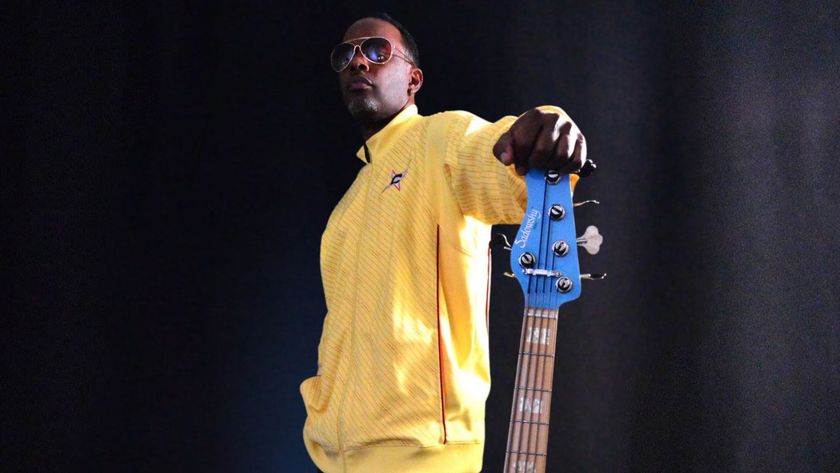
“It’s great to tap like Les Claypool and thump like Marcus Miller, but the world of a studio bassist is different”: Having graced hits by OutKast, TLC, and Usher, LaMarquis Jefferson carved a niche in a scene long dominated by synthetic low-end

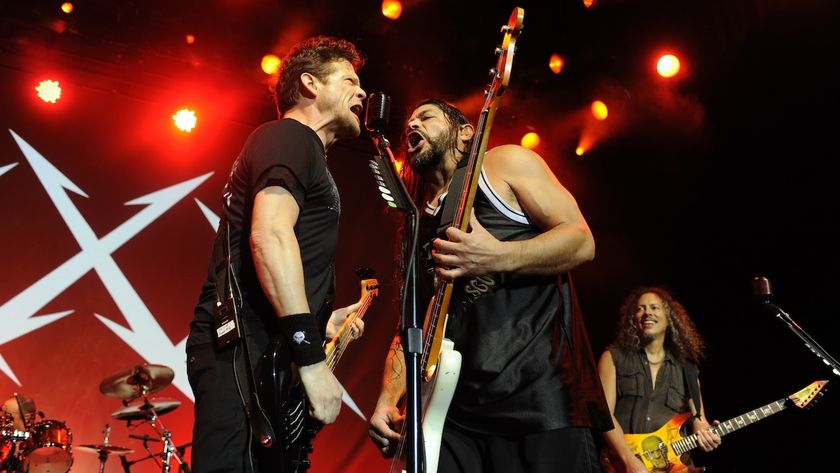
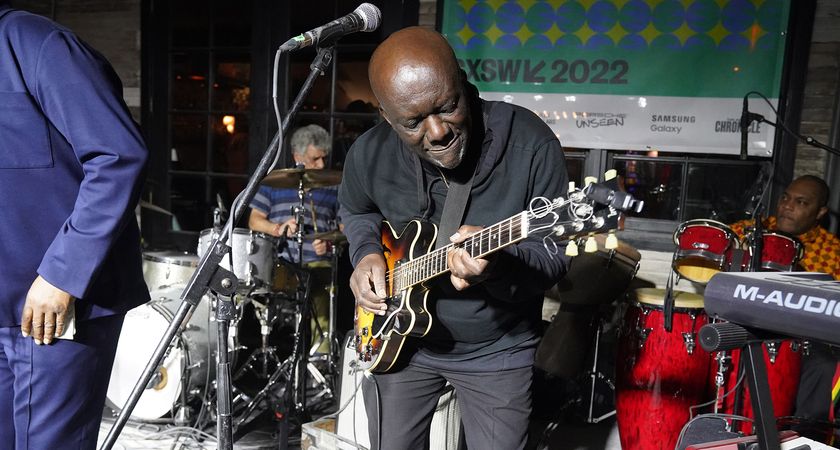
![[L-R] George Harrison, Aashish Khan and John Barham collaborate in the studio](https://cdn.mos.cms.futurecdn.net/VANJajEM56nLiJATg4P5Po-840-80.jpg)
